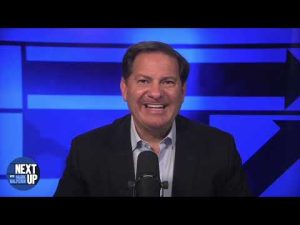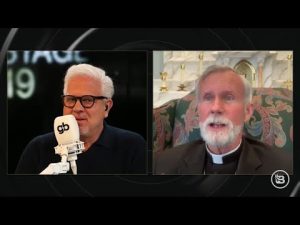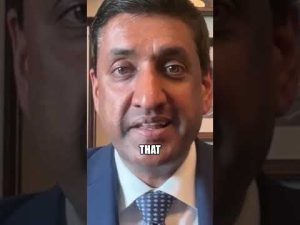During a recent National Prayer Breakfast, President Trump found himself responding to a sermon delivered by Episcopalian Bishop Mary Ann Buddy, which seemed more like a political rally than a prayer. The Bishop urged the President to “have mercy” on illegal immigrants and members of the LGBTQ community. This drew an immediate reaction from Trump, who did not shy away from expressing his disapproval of the service itself. He expressed that it lacked excitement and could use a significant improvement.
Bishop Buddy’s sermon highlighted the struggles of immigrants, including those who work in essential roles within our society, like cleaning offices and picking crops. She painted a picture of compassion, claiming that the majority of immigrants come to America seeking a better life, not as criminals. In her view, they are hardworking individuals contributing positively to the country, even if they lack proper documentation. This compassionate sentiment, however, was met with skepticism by many, including Reverend Franklin Graham, who was also present to share his thoughts on the matter.
Reverend Graham opined that it was inappropriate for the Bishop to use such a significant platform for political purposes instead of spiritual engagement. He argued that genuine compassion must adhere to the law, criticizing the current immigration policies as overly lenient. Instead of allowing a flood of individuals to enter the country unregulated, he contended that there needs to be a systematic approach that respects legal processes. Graham emphasized that everyone should be subject to the same laws, insisting that compassion should not be a selective virtue.
The Reverend also noted that this wasn’t the first instance of Bishop Buddy expressing her feelings about Trump. In the past, she had openly criticized him, describing the need to replace him with better leadership. This kind of narrative fueled the perception that she is not just a spiritual leader, but also a political activist with a specific agenda. Graham articulated that the presence of such activists at prayer services is troubling, suggesting that the focus should return to worshipping God rather than pushing political beliefs.
As the conversation continued, they touched on the dark political landscape that Trump has navigated over recent years. Reverend Graham referenced how Trump has, in many ways, changed since facing numerous hurdles during his presidency. He encouraged the President to seek divine guidance as he moves forward, suggesting that such personal reflection can bring about positive transformation not only in Trump but in others as well.
In the end, this Prayer Breakfast highlighted the contentious intersection of faith and politics in America today. While some see the church as a platform for advocacy, others believe it should be a space for reflection and worship. As the dialogue surrounding these important issues continues, it remains to be seen how these discussions will shape both faith communities and political landscapes in the future.







